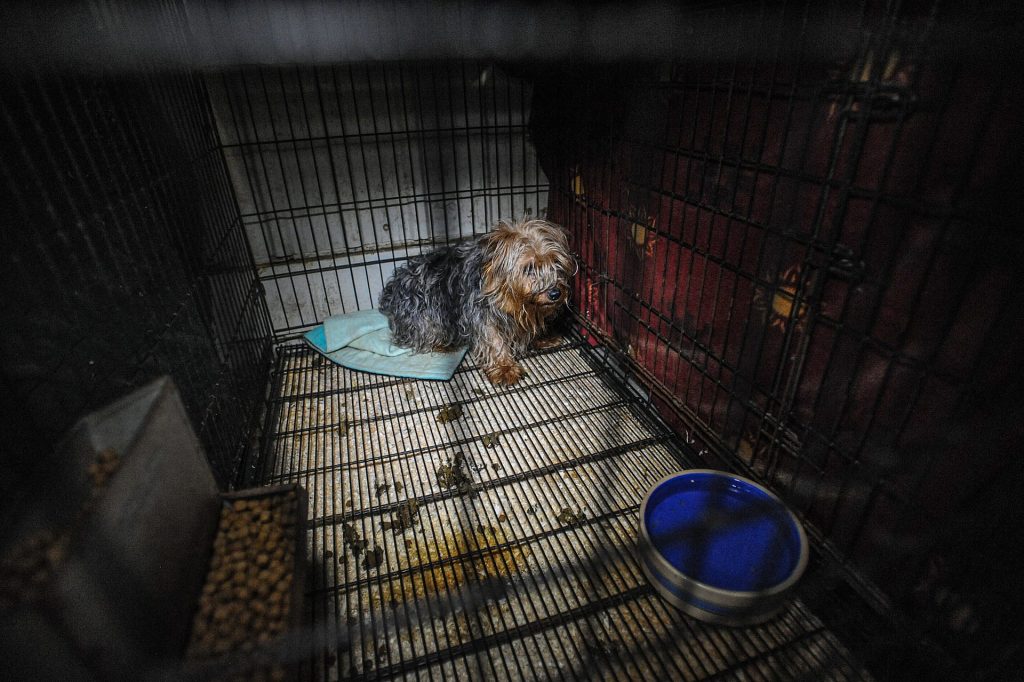Many people think giving a puppy or kitten as a gift is a good idea, but the initial delight of a new companion animal can be quickly overshadowed by realizing the lifelong commitment, significant responsibilities, and challenges that come with raising them.
As a result of this buyer’s remorse or “puppy blues”, animal shelters and rescues see a definite rise in animal surrenders after any holiday, especially Christmas, Valentine’s Day, and Easter.
Shelters & Rescues Are Already Over Capacity
Following the initial surge in adoptions during the ‘pandemic puppy’ craze, shelters have seen a worrying increase in intakes from 2021 and on. As life returns to a semblance of pre-pandemic normalcy, many are finding themselves unable to continue caring for the animals they bought or adopted during the pandemic.
In 2021, approximately 21,000 dogs entered Canadian shelters, with a euthanasia rate of 10 percent. About 30 percent of these animals were surrendered by their caretakers, with 15 percent citing that veterinary care was unaffordable. Approximately 60,000 cats entered Canadian shelters, with a euthanasia rate of 11 percent. Similar to dogs, many cat surrenders are due to financial constraints, as many guardians are forced to choose between feeding their animal companion or themselves.
This data is from Humane Canada’s 2021 report—but it doesn’t tell the whole story. The analysis only includes Canadian humane societies and SPCA operating facilities, representing only about half of the shelters in the country. It also doesn’t cover volunteer-based animal rescue groups, which have told Animal Justice they are being “bombarded with surrender requests” at the moment.
Consider Fostering
If you’re considering adopting a furry friend but are hesitant about a 10 to 20-year commitment, fostering is an excellent option—caring temporarily for an animal until they find a permanent home. This not only reduces the stress and isolation that animals often face in shelters, but also offers a nurturing space for them to recover, both emotionally and physically, from past experiences. In a safe and loving foster home, animals have the opportunity to reveal their true personalities, making them more likely to find a forever home. By relying on foster homes, shelters can also expand their capacity to help more animals in need.
Adopt, Don’t Shop
According to a 2021 survey, 43 percent of dogs acquired in Canada were bought from a breeder, and 13 percent were bought from a pet store. Unfortunately, many of these dogs would have been bred in cruel puppy mills or by irresponsible backyard breeders, that cause unimaginable suffering to dogs and their puppies.
Dog breeding has undeniably fuelled the crisis in shelters and rescues. That’s why we always urge people to adopt, not shop! Adopting from a shelter helps the thousands of homeless animals who are sitting in shelters, desperately waiting for their forever home. With research and patience, even families searching for a companion animal with a specific trait or size can find their perfect match in one of Canada’s many shelters and rescue organizations.

Canada’s Puppy Mill Problem
Nearly all puppies sold in pet stores come from puppy mills. In most of the country, animal breeders don’t need to be licensed or registered with the province. Without a licensing regime, government oversight, or regulations to dictate standards of care, cruel puppy mills have proliferated throughout much of Canada.
Puppy mills consistently cut corners at the expense of the animals, resulting in suffering from chronic conditions, abuse, neglect, and genetic defects. Both puppies and parents are often kept in poor, cramped conditions without adequate exercise. But while the puppies are eventually sold, the mothers live in these conditions their entire lives, and are bred over and over again until their bodies give up.
Without licensing requirements, authorities usually have no way of identifying where these places exist. On the rare occasion puppy mills are busted, dog seizures have highlighted despicable conditions—mother dogs are found filthy, severely matted, and covered in urine and feces.
Please join us in taking action to protect dogs from cruel puppy mills, and remember to always adopt from a shelter, and not buy from a breeder.
